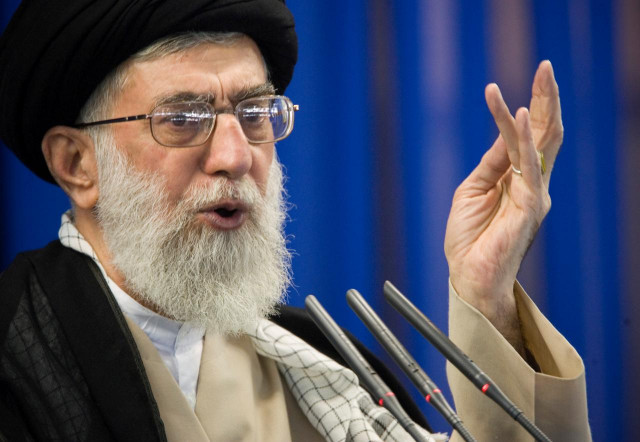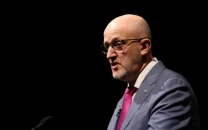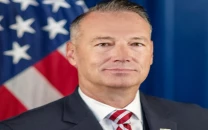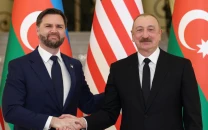Iran's Khamenei doubted Europe could help Tehran against US sanctions
Khamenei says 2015 nuclear deal did not resolve any of economic problems

Iran's Supreme Leader Ayatollah Ali Khamenei - PHOTO REUTERS
The release of Khamenei’s speech nine months after his meeting with the cabinet, showed while President Hassan Rouhani was trying to save the nuclear deal with European powers, who remained committed despite the US exit in May 2018, Khamenei was not optimistic about the efforts.
The Europeans would naturally say they are protecting Iranian interests with their package "but (the Iranian government) should not make this a main issue," Khamenei was quoted as saying by his official website on Monday.
Khamenei’s comments were published a week after Rouhani rejected the resignation of Foreign Minister Mohammad Javad Zarif, a US-educated veteran diplomat who championed the nuclear deal.
Iran's Khamenei says the world opposes Trump's decisions
The scepticism from Khamenei casts doubt on efficiency of Zarif’s past and present efforts to keep the agreement alive.
Iran and six major world powers reached a nuclear deal in 2015 after more than a decade of negotiations. Under the deal, sanctions imposed by the United States, European Union and United Nations were lifted in return for Iran agreeing long-term curbs on a nuclear program that the West suspected was aimed at creating a nuclear bomb.
Khamenei said that the deal did not resolve "any of economic problems" of Iran, and predicted that the mechanism proposed by Europeans to shield business with Iran against the US sanctions would not also be a solution to economic hardship.
“(The Europeans) are bad. They are really bad. I have a lot to say about the Europeans; not because of their current policies, but their mischievous nature in the last few centuries.”
France, Germany and Britain opened a new channel for non-dollar trade with Iran in January, although diplomats say it is unlikely to allow for the big transactions that Tehran says it needs to keep a nuclear deal afloat.
Iran has threatened to pull out of the deal unless the European powers enable it to receive economic benefits. The Europeans have promised to help companies do business with Iran as long as it abides by the deal.
Washington says that, although Iran has met the terms, the accord was too generous, failing to rein in Iran’s ballistic missile program or curb its regional meddling.
New US sanctions have largely succeeded in persuading European companies to abandon business with Iran.



















COMMENTS
Comments are moderated and generally will be posted if they are on-topic and not abusive.
For more information, please see our Comments FAQ